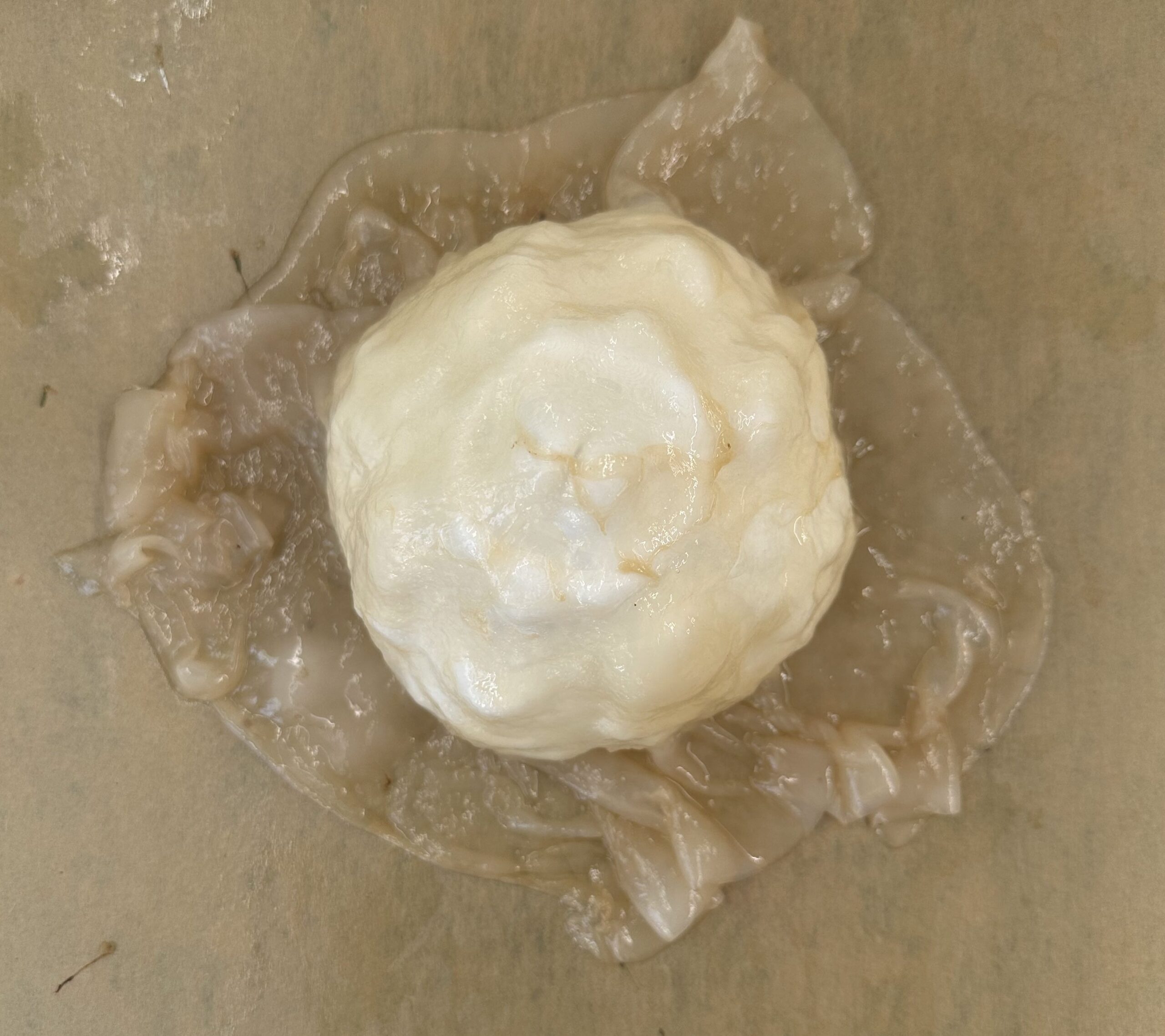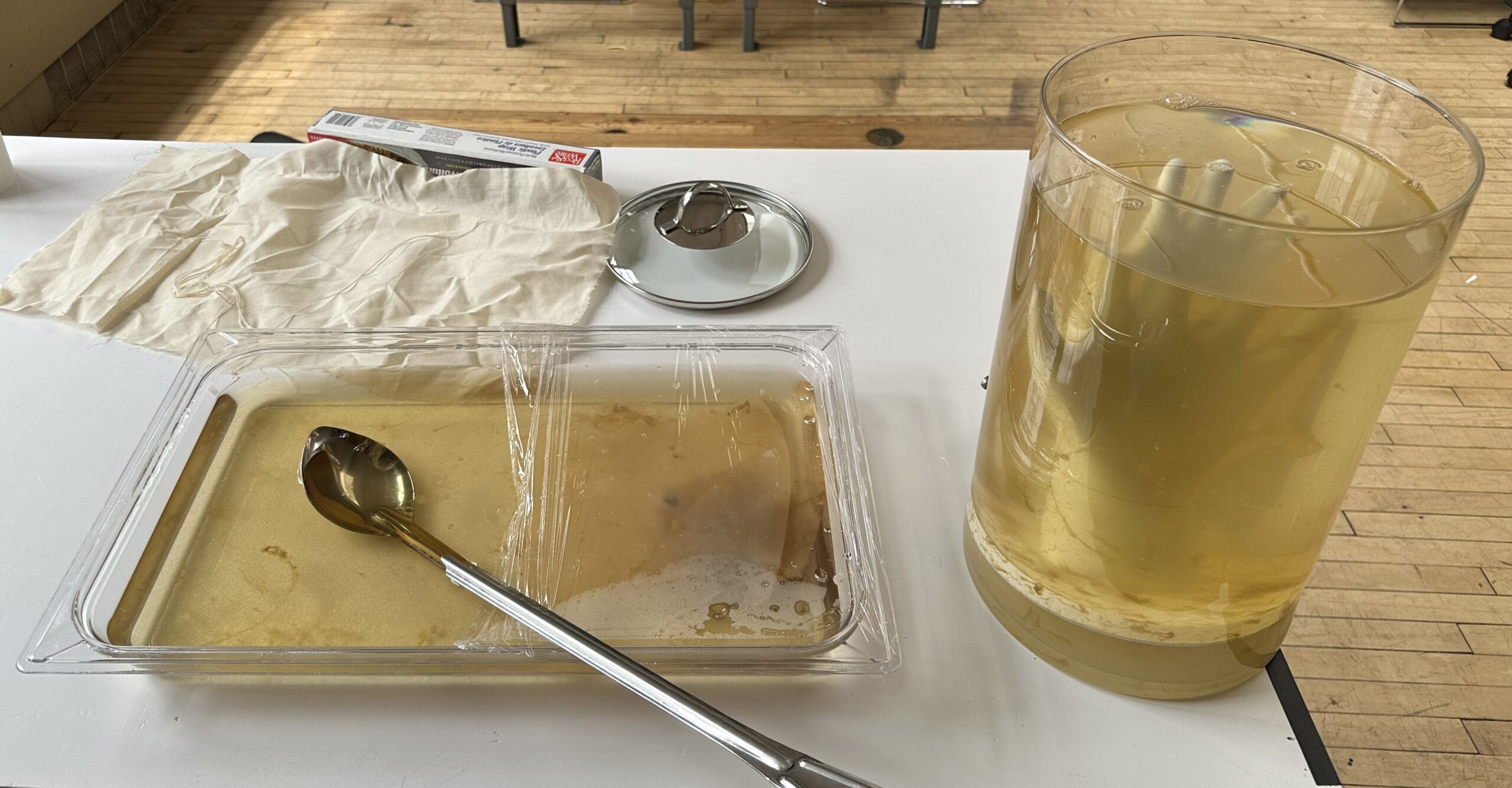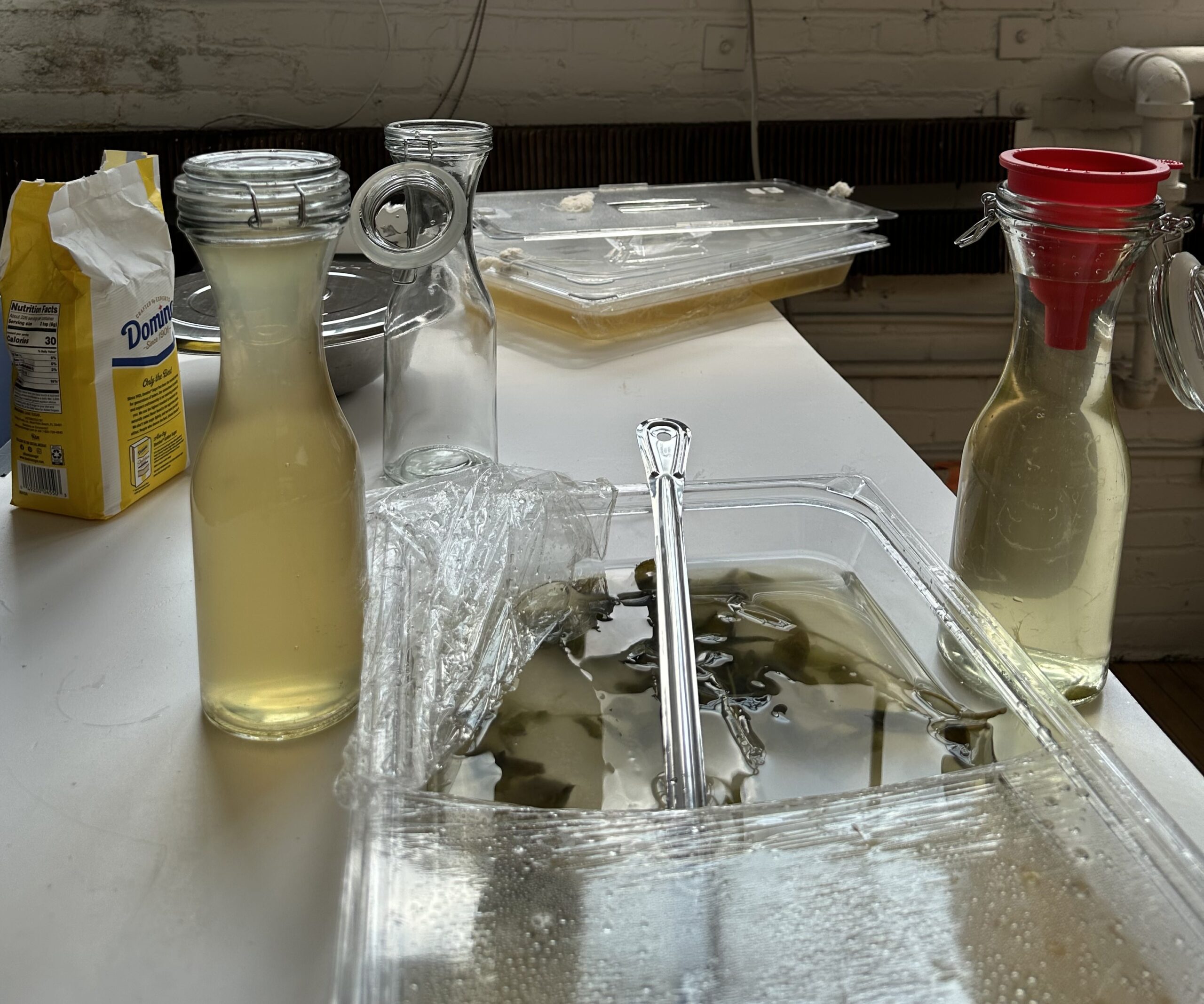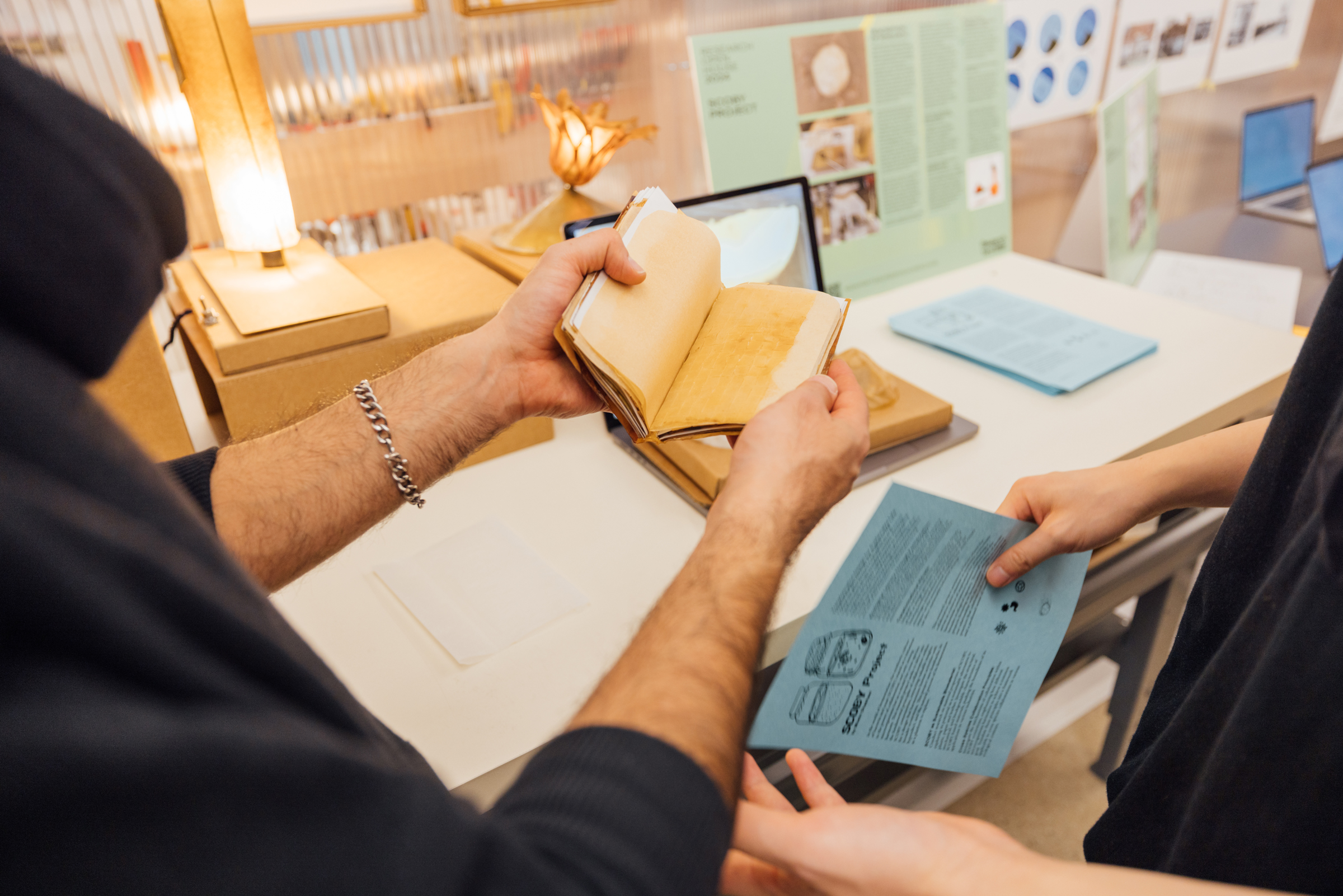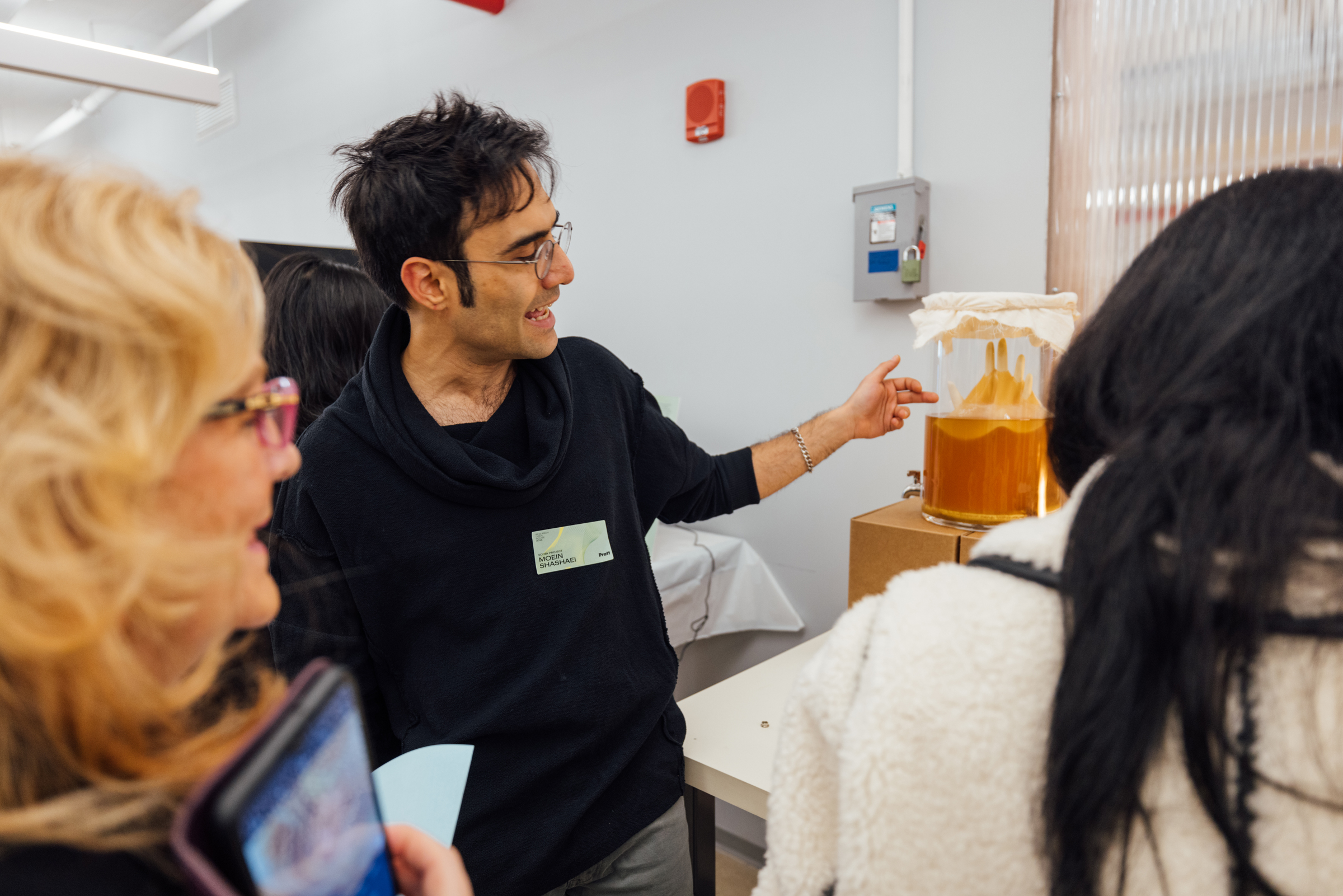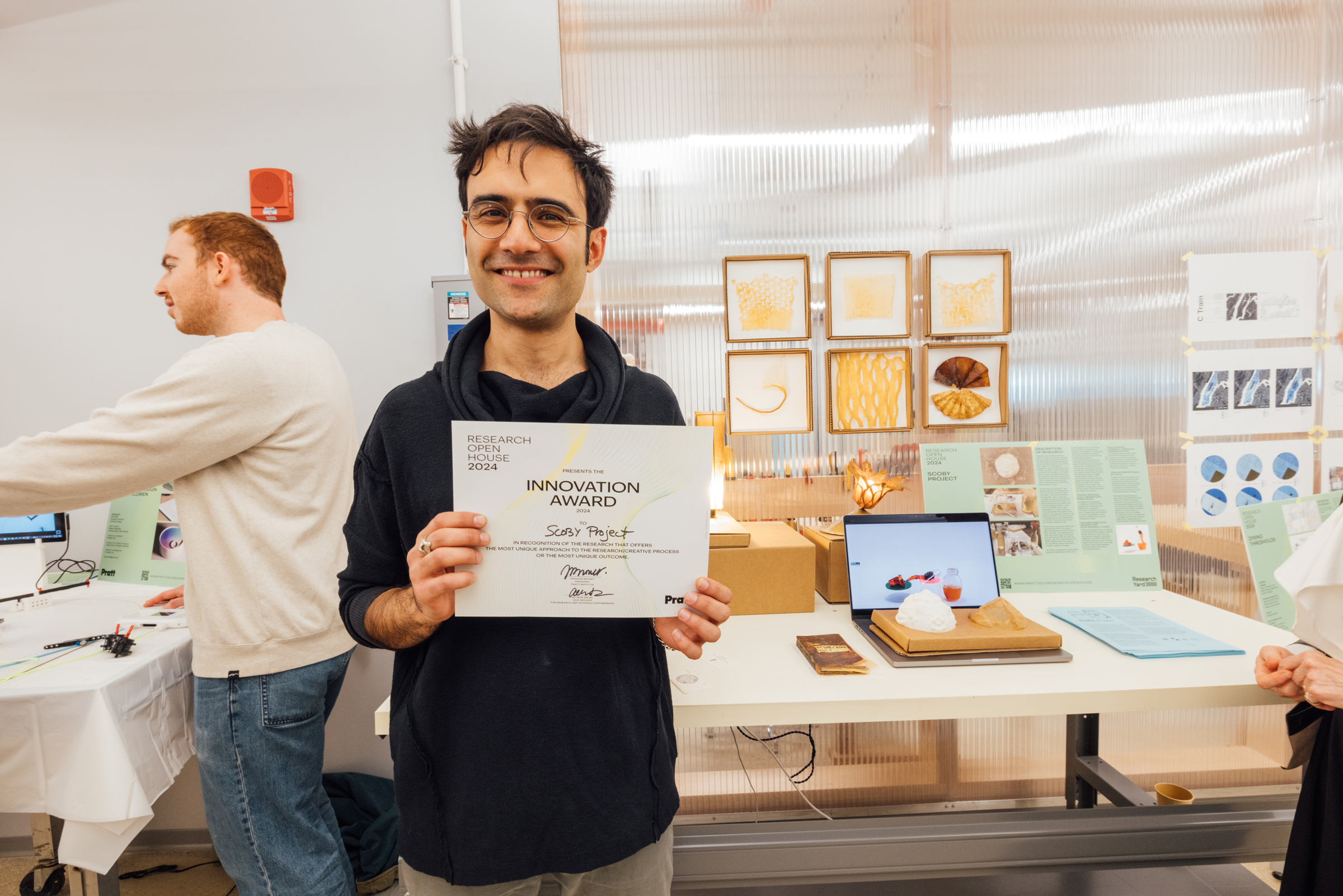SCOBY Project
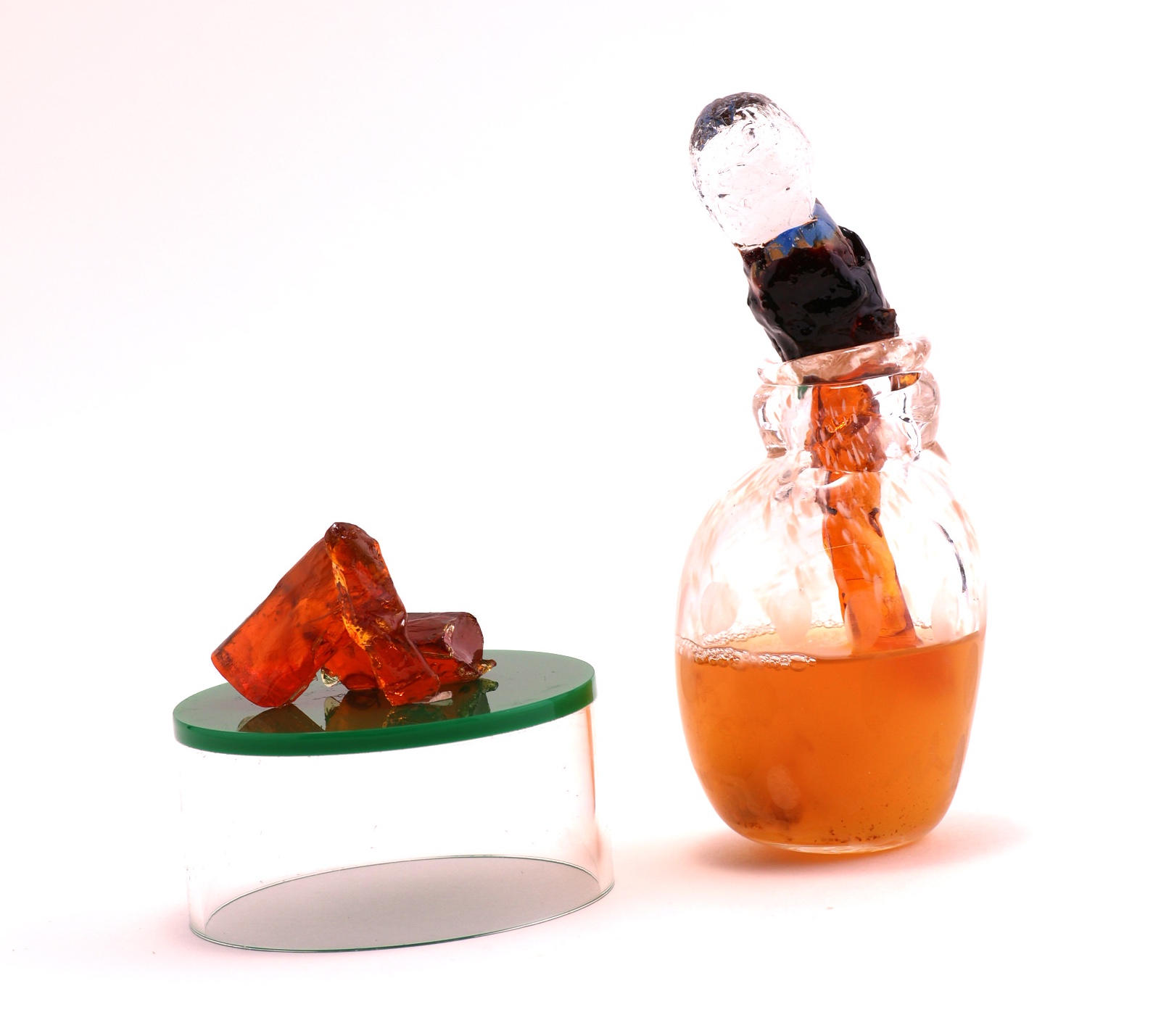
Moein Shashaei, Visiting Assistant Professor, Undergraduate Communications Design
School of Design
Innovation Award Winner
I learned making Kombucha over the Covid19 lockdown. Besides being a refreshing probiotic drink, the brewed sweet tea started fascinating me as a model system for cooperation and conflict in a multi-species ecosystem. Upon introduction of the SCOBY (Symbiotic Culture of Bacteria and Yeast) to the sweet tea, the yeast eats the sugar and makes alcohol. At the same time, bacteria consume the alcohol and produce acid, generating a film of bacterial cellulose on the surface of the liquid, that will house their symbiotic colony.
For the Spring 23 semester, I was asked by the UgComD department to run a trial, very hands-on class of Product, Environment, Material. Through that, I got to meet the Thermoforming (vacuum) machine. I learned more about the family of thermoplastics that are widely used in the packaging industry — most are not recyclable. As the class conversation on “what could be a more sustainable alternative for this material” was ongoing I thought of the kombucha biofilm. The past summer I received the SoD faculty fellowship for “SCOBY Thermoforming Project” and started brewing at Pratt.
By the end of my summer fellowship, I learned that SCOBY as I know it right now perhaps is not thermoform-able. However, I am experimenting with many other ways of forming it both during its growth and after the harvest. I am also doing research into all the different ways this material can be used as a green alternative to plastic, leather, and paper.
For Fall 23, I received the Dean’s Office graduate assistantship fund for this project. Right now I am producing more SCOBY and expanding the capacity of my research. I am optimistic about the potential of this material for starting some conversations and solving some problems.
In the world of fermentation, the symbiotic culture of bacteria and yeast (SCOBY) stands as a testament to the power of collaboration, not only among microorganisms but as a model for cross-species harmony. This research project seeks to delve into the fundamental principles of collaboration within SCOBY communities, extracting valuable insights for design that harmonizes human activities with broader ecosystems. This project uses kombucha, its byproduct, and the natural process of its fermentation as a platform to explore:
Cross-Species Collaboration Principles:
Investigate the mechanisms of collaboration within SCOBY ecosystems, emphasizing how different microorganisms harmonize to achieve a common goal. Translate these principles into a framework applicable to cross-species collaborations in various ecological contexts.
Transformation Design for Sustainable Living:
Explore the gateway from a metaphor to real transformation design to reshape human practices in harmony with the broader ecosystem, leveraging insights from SCOBY collaboration principles. Develop human-centered design interventions that encourage symbiotic relationships between humans and the other world for sustainable living.
Ecological Literacy Through Fermentation:
Develop educational programs that use SCOBY fermentation as well as other bioprocesses to enhance ecological literacy. Enable individuals to understand and appreciate the collaborative dynamics inherent in ecosystems, fostering a mindset of interconnectedness.
Transformational Rituals:
Integrate SCOBY fermentation into everyday rituals, transforming the act of brewing kombucha into a reflective practice that encourages mindfulness and an awareness of our impact on the environment. Explore how such rituals can drive sustainable behavior change.
This research project envisions a future where the collaborative spirit inherent in SCOBY ecosystems serves as a source of inspiration for transformational design, promoting a harmonious coexistence between humans and the broader ecological tapestry. Through the lens of fermentation, we aim to redefine our relationship with the natural world, encouraging practices that celebrate collaboration, sustainability, and a profound sense of interconnectedness.
